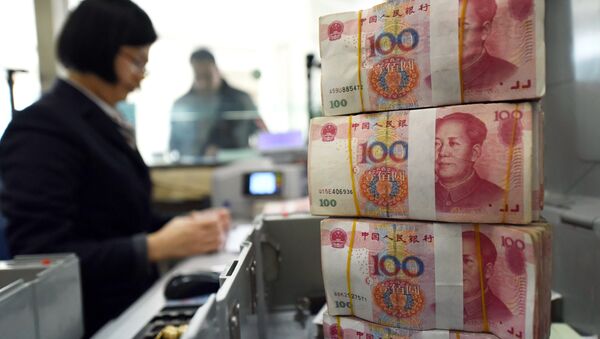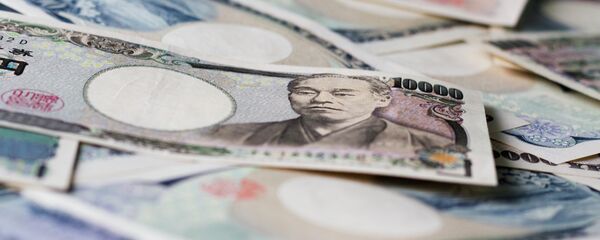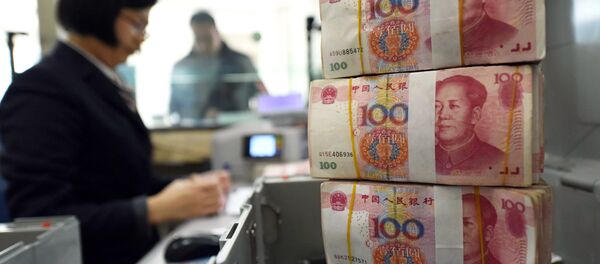Kristian Rouz — Mainland China's authorities in Beijing stated on Thursday, one day before the G20 finance ministers' summit in Shanghai, they would abstain from sudden renminbi devaluations as a tool to support the slowing economy. Given the forecasts of Chinese manufacturing contracting for the seventh consecutive month, the markets responded with mistrust, with the mainland's stocks declining 6% during the day posting their biggest losses in a month.
Beijing will have to spur overall economic growth, now expected at an annualized 6.5% in 2016 (compared to 6.9% in 2015), before the slowly progressing systemic reforms will bring any substantial improvements in the greater picture, meaning renminbi devaluations might continue.
Lou Jiwei, China's finance minister, said on Thursday the authorities in Beijing would not suggest any renminbi devaluations at the G20 summit. Simultaneously, Zhu Guangyao, vice FM noted the People's Bank of China (PBOC) is intending to keep the renminbi's FX rate at its current levels against the US dollar within the ‘managed float' approach. That means the PBOC will have to increase their spending of China's FX reserves in order to support the FX rate, as the broader economy and macro data suggest devaluations are looming.
Adding monetary stimulus, or loosening policies, generally reflects negative on the national currency's FX rate, meaning either a series of small-scale renminbi devaluations or a gradual increase in spending of FX reserves in order to support the currency. Consequently, if Beijing chooses the second path, China might dum more US Treasuries soon, cashing them out so the liquidity might be used to support FX rate.
"You have to communicate clearly publicly or it will be interpreted for you," US Secretary of the Treasury Jack Lew said on the occasion.
In August, the PBOC suddenly devalued the renminbi by about 5%, prompting investors to move out of the currency. A series of subsequent minor devaluations further undermined the market's trust of the PBOC's wording.
Meanwhile, the PBOC might shift their approach to FX rates in favour of measuring the renminbi's FX rate against the basket of currencies instead of the dollar-renminbi watch. As many major currencies have devalued recently, including the euro and the pound sterling, the renminbi might remain ‘stable' against the basket of currencies while actually devaluing against the dollar.
"A stable situation is good for everyone," Yi Gang, vice governor for the PBOC, said. "If we have a relatively robust growth rate, we have a market-oriented exchange rate, but at the same time we still have an anchor <…> this will be good for everybody."
Meanwhile, capital flight from the mainland via the Stock Exchange scheme is a yet another challenge to the renminbi's FX rate stability. Amid rife disinvestment, Beijing will have to either spur up structural reforms aimed at remodeling the economy toward domestically-driven growth, or gradually devalue the renminbi, no matter the official statements. The likeliest outcome would be a combination of both ways.



